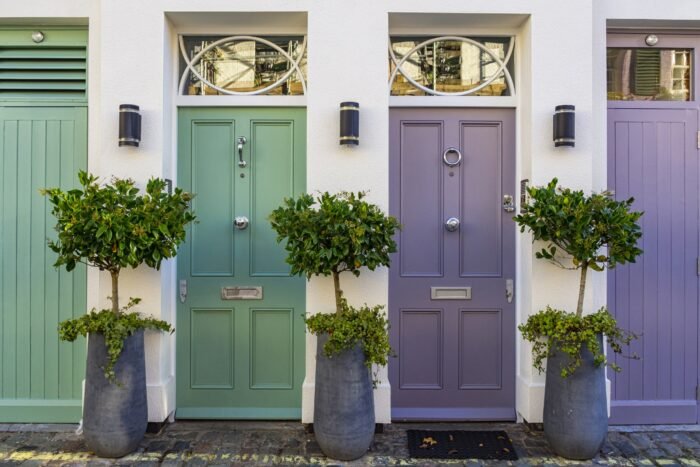Low income or insufficient deposit often delay the purchase of a dream property. The Shared Ownership program available in the UK can be an interesting alternative. It offers a kind of co-ownership contract with housing associations and allows the purchase of shares, usually from 25% to 75%. The remaining part belongs to the housing association, to which a monthly rent must be paid. Typically, the costs of the monthly mortgage repayment, rent, and association fees do not exceed the price of renting a similar property in the area.
Most housing associations and developers offering properties for purchase under the Shared Ownership scheme provide the opportunity to purchase 100% of the shares in the future – this process is called staircasing. Alternatively, you can also apply to increase your shares (e.g. from 25% to 50%), which will increase your ownership stake and reduce the amount of rent paid (Shared Ownership Rent).
Shared Ownership is, therefore, a very good option for people who cannot afford a mortgage on normal terms, for singles, and as a transitional option (in the case of homes that can be fully purchased). Moreover, it is an excellent way to build your own capital – for example, by purchasing 30% of shares in a property worth £270,000, you can build capital worth £81,000.
Who can benefit from the Shared Ownership program? (Eligibility)
What conditions must you meet to qualify for the program:
- The shared owner must be at least 18 years old.
- The household’s annual income must not exceed £80,000 or £90,000 in London.
- The buyer should be a first-time buyer or not own any other residential property at the time of purchase.
- The buyer cannot afford to purchase 100% of the property due to low income or insufficient deposit.
- A good credit history.
Shared Ownership and Designated Protected Areas
Some of the homes available for purchase under this Shared Ownership program have been built in designated protected areas. There are certain restrictions associated with their acquisition, with the most significant being the availability of this option only to individuals somehow connected to such areas.
Other limitations include:
- Limitation on the ability to purchase shares up to 75-80% of the property value.
- The possibility of selling the property only to the housing association (property landlord) or a person indicated by them – buildings of this type cannot be sold on the open real estate market.
Pros and Cons of Shared Ownership
When considering Shared Ownership as a housing option, it’s essential to weigh its advantages and disadvantages. Here’s a breakdown of the program’s strengths and weaknesses:
Shared Ownership – Pros
- Lower mortgage costs.
- Typically requires from only a 5% deposit on the value of purchased shares, with some lenders accepting buyers without a deposit.
- Options to buy either new properties from developers or resale properties.
- Reduced rent compared to market rates, based on the share owned.
- Potential to increase ownership shares over time, up to 100% through staircasing.
- Ability to sell the share of the property.
- Opportunity for earlier entry into homeownership without waiting to accumulate larger deposits or higher incomes.
Shared Ownership – Cons
- Full responsibility for ground rent and service charges regardless of the share size.
- Need for approval from the housing association for certain structural changes within the property.
- Prohibition on subletting the property.
- Restrictions on refinancing options.
- Additional financial and background checks may be required by Housing Associations, sometimes giving priority to specific groups.
- Housing associations may have the right of first refusal in the event of selling the property.
Assessing Your Financial Situation
To navigate the Shared Ownership program effectively, it’s crucial to understand your financial position. Here’s an example of potential costs associated with purchasing a property:
- Purchase price (Full market value): £250,000
- Cost of purchased shares: £125,000 (50%)
- Deposit required: £6,250 (5% of the share purchase price)
- Mortgage amount: £118,750 (95% of the share purchase price)
- Rent (Shared ownership rent): Calculated based on the share owned
- Additional fees: Service charge, ground rent
Getting Started with Shared Ownership
If you’re interested in Shared Ownership, seek guidance from a knowledgeable mortgage adviser who can provide tailored advice and access to suitable lenders offering shared ownership mortgages.
Additionally, explore available properties on platforms like Share to Buy, Rightmove, or Zoopla, and consider reaching out to local housing associations or developers for further information
Your home may be repossessed if you do not keep up repayments on your mortgage.









